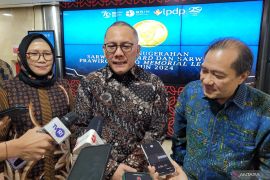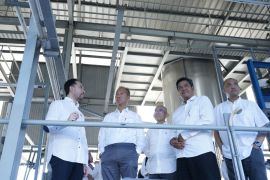He noted that recent developments in health technology have resulted in biotechnology that enables people to gain detailed knowledge about the causes of the diseases that afflict them.
The launch of the Biomedical & Genome Science Initiative (BGSi) at Dr. Cipto Mangunkusumo Hospital (RSCM) in Jakarta on August 14, 2022, marked the birth of biotechnology services in Indonesia.
"Back then, people's health was checked using a stethoscope, and then conclusions were drawn about the diseases. Now, it is different. It has become very certain, because when they are sick, each person's medicine may be different," he explained.
Biotechnology services are included in Chapter XI, Article 356-365 of the Health Bill, which focuses on health technology aimed at supporting the diagnosis, prevention, and treatment of human health problems.
Sadikin noted that Indonesia is gifted with extraordinary biodiversity.
In the western part of the country, the flora and fauna are in accordance with Asian biodiversity, while the eastern part has flora and fauna with an Australian genomic basis.
"In the middle, we have a mix of both," he pointed out.
The richness of biodiversity and genomic diversity will determine Indonesia's future as one of the producers of biotechnology-based medicines.
He said that the Health Bill also regulates the protection scheme for patients' genomic data to anticipate data leakage.
The government is doing protection for biogenomic data in Indonesia, he added.
Sadikin affirmed that Indonesia had been lagging behind for years in the area of scientific development, which is essential for progress in the country's medical field.
"Do not let us lag behind again due to being anti-science. This is crucially needed to maintain the health of our people," he affirmed.
Related news: Ministry prepares plan in place of mandatory spending policy
Related news: Health Bill ensures protection of infants, children: Ministry
Translator: Andi Firdaus, Raka Adji
Editor: Anton Santoso
Copyright © ANTARA 2023












